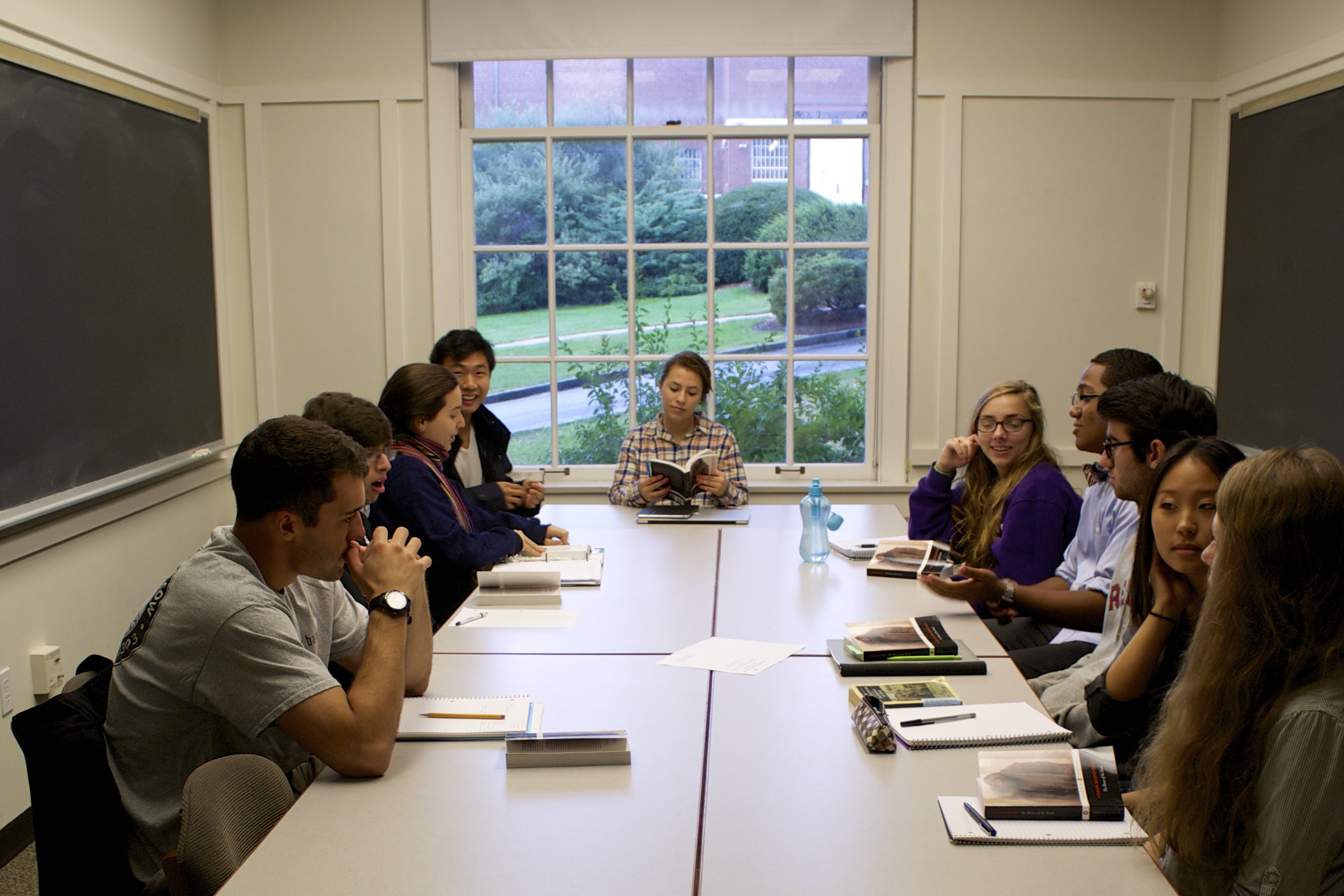

The 2014-2015 Copeland Colloquium begins at 7 p.m. this Wednesday evening with a screening of Sofia Coppola’s 2003 film “Lost in Translation.”
Hosted by Amherst Cinema, the film will be introduced by Mount Holyoke Professor Christopher Benfrey and will be followed by a 20-minute discussion. For each month of the academic year, a different film will receive a similar analytical treatment as part of a translation film series, just one of the many events scheduled for this year’s Copeland Colloquium, “Words in Transit: The Cultures of Translation.”
Since its creation in 1971, the Copeland Colloquium has sought to bring together scholars, lecturers, artists and others from all disciplines and corners of the globe to provide varying perspectives on a specific theme.
“Our intention has been to make Amherst College less aloof, more connected by reaching out to local and national institutions to create a series of events that involve students, faculty, staff, administrators and the general public in the Pioneer Valley,” said steering committee member and Professor of Latin American and Latino Culture Ilan Stavans.
This year’s theme, “Words in Transit,” explores both the perils and possibilities that come with communicating across language barriers via translation. In an email sent to the Amherst community earlier this month, Dean of the Faculty Catherine Epstein said that the colloquium will also focus on related themes of immigration, journalism, hybrid cultures, international diplomacy and the role of the humanities in a multicultural society.
“There are around 6,500 languages in the world today,” Stavans said. “Speaking one, maybe two of these languages makes us members of the community. That community, to survive needs to be in constant dialogue with others.”
Another central focus of this year’s theme will be the challenges and opportunities that technology poses for effective translation.
“Do Facebook, Twitter and Instagram bring us closer together? Or do they push us further apart making people lonelier, less in touch with society? And how do different linguistic communities interact on social media?” Stavans asked.
The task of exploring these questions will be taken on in a series of “Translator Talks.” Among those scheduled to present their ideas are international investigative reporter and New Yorker staff writer John Lee Anderson, novelist Jeff Parker and German literature translator Susan Bernofsky.
Other collaborators from less linguistic backgrounds have been invited as well.
“We thought it would be most interesting to invite people involved in other areas like music and engage them in a conversation about translation,” said steering committee member and Professor of Russian Catherine Ciepiela, “They may not have been asked to talk about translation before. But that’s another way which we thought, ‘oh that’ll really open the conversation up’— if the people you’re inviting don’t have a professional line on translation. We’re interested in seeing how translation issues affect many areas of cultural life.”
One of these unusual voices weighing in on the question of translation will be world-renowned Panamanian jazz pianist and composer Danilo Pérez.
“It’s an interesting place to talk about the link between history and culture and language and music,” Ciepiela said. “Jazz is an international idiom that still draws on local traditions, not just musical, but even linguistic traditions. Indigenous languages and Spanish are part of the texture of his music.”
The experimental theater group, Double Edge will also join the conversation, performing on Sept. 28 their adaptations of “Don Quixote,” “The Arabian Nights,” and “The Odyssey” with the first-year quad as their stage.
The discussion will not just be limited to those visiting campus, however. Amherst students are already beginning work on a series of related projects that will engage both the campus community and the Pioneer Valley community.
“Amherst College students will be involved with NPR in producing an Oral History of immigrants to the region who tell stories about learning English, and [others] will also collaborate with the Amherst Regional High School in producing short plays about young people coming to the United States,” Stavans said.
One student, Melih Levi ’15, is currently developing a blog that he says will function as a sort of “hub for student reflections.” Levi hopes to recruit submissions, including translations done by students, writings on translation and visual arts.
“I really think that translation is crucial for what we do in the humanities,” Ciepiela said. “And Amherst, I’m proud to say, is really having to get out in front culturally as an advocate of the liberal arts and the humanities. The practice of translation goes to the heart of what we do, I think.”
The complete schedule of events for the Copeland Colloquium can be found here.